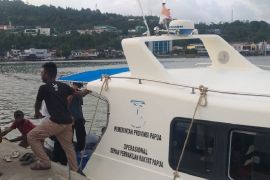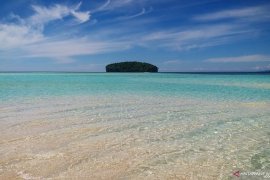The remarks are sure to spark concern after the United States lambasted Myanmar this week for failing to address the cause of the crisis, which observers say stems from Myanmar's refusal to recognise the Rohingya, an ethnic minority group living in western Myanmar, as citizens.
Most of Myanmar's 1.1 million Rohingya are stateless and live in apartheid-like conditions. Almost 140,000 were displaced in deadly clashes with Buddhists in the western state of Rakhine in 2012.
UN agencies have urged regional governments to protect thousands of migrants stranded on boats in the Bay of Bengal and the Andaman sea with dwindling supplies.
Hundreds of migrants, including Rohingya from Myanmar and Bangladeshis fleeing persecution and poverty at home, have been pushed back out to sea by Thailand, Malaysia and Indonesia this month. Many now face sickness and possible starvation.
Senior Myanmar General Min Aung Hlaing "hinted that most victims are expected to assume themselves to be Rohingya from Myanmar in the hope of receiving assistance from UNHCR" during a meeting with U.S. Deputy Secretary of State Antony Blinken on Thursday, the state-backed Global New Light of Myanmar newspaper reported.
He cited reports that the "boat victims" were from Bangladesh.
"He stressed the need to investigate their country of origin rather than to accuse a country," the newspaper reported.
Blinken had stressed the need for Myanmar to address the causes of the migration, "including the racially and religiously motivated discrimination and violence".
Many Rohingya have long complained of state-sanctioned discrimination in Myanmar and are denied citizenship. Myanmar denies discriminating against the group and has said it is not the source of the problem.
Malaysian Prime Minister Najib Razak on Thursday pledged assistance and ordered the navy to rescue thousands adrift at sea, and a Thai official said Myanmar had agreed to attend an emergency conference on the crisis.
Malaysia and Indonesia have also said they would let as many as 7,000 migrants on the seas now to come ashore temporarily, but no more.
Both countries have also said that temporary shelters would be set up to house the migrants but Thailand, a traditional transit point for those trying to reach Malaysia for work, said it would not follow suit.
Editor: Ade P Marboen
Copyright © ANTARA 2015







